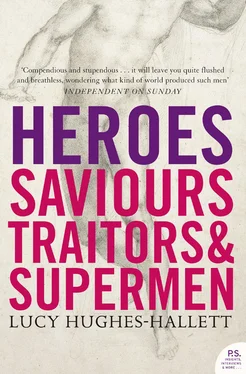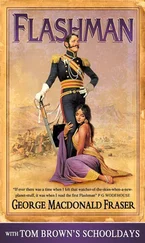Nor, given the influences to which he had been exposed, was it entirely unpredictable. The nurse who cared for him in his earliest childhood was a Spartan woman. His family had long had Spartan connections. One of his first political acts was to claim for himself the position of the Spartans’ representative in Athens, a job that had traditionally been performed by his forebears. When the Spartan delegates came to Athens to negotiate peace terms in 421 BC Alcibiades enjoyed privileged access to the most powerful of them, the ephor Endius, with whom he had family connections. The two states might be deadly enemies, but they were also near neighbours, and the links between upper-class families, in classical Greece as in medieval and early modern Europe, transcended national boundaries.
Besides, as an adolescent Alcibiades had been Socrates’ best-beloved disciple. Socrates was said to be the only person who could manage him, the only one whose opinion Alcibiades valued and whose advice he took. It is unclear how much influence the philosopher maintained over him once he was an adult, but unless Plato’s Symposium is entirely fictional (which is unlikely), they were still close friends in the year before the Sicilian expedition embarked. ‘ What you have said’, Alcibiades tells Socrates in Plato’s account, ‘stirs us to the depths and casts a spell over us.’ Much later, when the philosopher was on trial for his life, his friends were at pains to point out that he could not be held responsible for the actions of his followers, but that he influenced their thinking seems indisputable. In The Birds Aristophanes describes a group of unpatriotically pro-Spartan youths as having been ‘socratified’. The jibe was amply justified. The philosopher’s most prominent disciples included not only the traitor Alcibiades but also several others who were passionate admirers of all things Spartan. Xenophon the historian, who was one of Socrates’ devoted followers, fought for the Spartans against Persia, accepted an estate in recognition of his services from the Spartan King Agesilaus, and lived happily on it for twenty years. When Sparta was defeated by the Thebans in 371 BC, he was obliged to leave, but he did not return to Athens. Critias, the collaborator who was set up by the Spartans as leader of the oligarchic regime of the Thirty Tyrants in Athens in 404 BC, was another of Socrates’ circle. And so of course was Plato, a nobleman who had relatives among the Thirty and whose ideal state, as described in the Republic , has a constitution that resembles that of Sparta far more closely than the Athenian one. It has been arguedthat when the restored Athenian democracy accused Socrates of ‘corrupting the youth’, and put him to death for it, the charge had a precise political meaning. He was being accused of being a Spartan sympathizer. The heroic stand he made at his trial, which has earned him the admiration of generations of libertarians and defenders of free speech and free enquiry, was made, if this theory is correct, in assertion of his right to commend one of the most repressive and secretive regimes in recorded history.
Sparta is the classical model for all subsequent totalitarian states, just as Athens is for democracies. It was a warrior society, dedicated with grim exclusivity to its own preservation and aggrandisement. The Spartans were a Dorian people who had invaded the Peloponnese from the north and had reduced the indigenous population, known as Helots, to a state of serfdom. The Helots had not submitted tamely. Their repeated uprisings were brutally suppressed. New ephors, on taking office, routinely declared war on them ‘in order that there might be no impiety in slaying them’. The state maintained a corps of Helot killers whose operations Plutarch describes: ‘ They would be armedwith daggers and supplied with basic rations, but nothing else … At night they came down onto the roads and, if they found a Helot, would cut his throat.’ Sparta’s much admired stability was guaranteed only by the omnipresence within it of violence and sudden death.
The Helots were obliged to provide food for the master race. The Spartans, thus freed from the labour of providing for themselves, were able to devote themselves single-mindedly to the business of warfare. ‘ The Spartans are,of all men, those who admire poetry and poetic glory least,’ noted Pausanias. ‘ They did not understandhow to be at leisure’, wrote Aristotle, ‘and never engaged in any kind of training higher than training for war.’
It was forbidden for any Spartan to travel abroad except for purposes of conquest and foreigners were not made welcome, for Lycurgus, the Spartans’ mythical lawgiver, had wished the society he created should remain permanently intact and unchanged and ‘along with strange people strange doctrines must come in’. Trade was virtually non-existent, each citizen living off the produce of his own allotted plot of land. Lycurgus had forbidden luxury of all sorts. The staple Spartan food was a black broth famous throughout Greece for its nastiness. Spartan houses were all identical, and so crudely built that, according to a patronizing Athenian joke, a Spartan visiting Corinth was astonished to see wooden planks and asked whether the trees in that region had square trunks. Spartan dress was austerely simple. Even Spartan speech was limited and deliberately brusque. The people maintained a ‘general habit of silence’, a ‘laconicism’ (the word means simply ‘Spartan’), which combined the caution of those whose rigidly conservative, authoritarian state permitted them no political voice and the dumbness of those whose every personal response was suppressed or put to public use.
The state was all-encompassing. Spartans, according to Plutarch, had ‘ neither the timenor the ability to live for themselves; but like bees they were to make themselves integral parts of the whole community’. The city was like a military encampment, where each person had allotted duties. All personal relationships were subordinated to that between the individual and the state. Male babies were inspected by the elders at birth. If they were not perfectly healthy they were thrown into a ravine. Those who passed muster were cared for by their parents until the age of seven, when they entered the school, a vast boot camp whose curriculum consisted almost entirely of gymnastics, where they learnt obedience to discipline, indifference to pain and the rigid suppression of private emotion.
The boys were systematically underfed and encouraged to steal to satisfy their perpetual hunger, but if they were caught in the act they were ruthlessly flogged. The young men lived in all-male dormitories but they were permitted to marry. A bride was abducted by force from her family home. Her hair was cropped back to her scalp by a ‘bridesmaid’, who then stripped her and left her lying alone on the floor of a darkened room to await her husband, who came late at night and stayed only long enough to perform his reproductive duty before returning to the men’s house. The couple’s subsequent encounters would be equally swift and furtive, and always nocturnal, so that a woman might give birth to several children before seeing her husband’s face. All men, of whatever age, took their meals in the communal mess (women ate separately, and were rationed to about one-sixth the quantity of food allowed to their menfolk). Men who refused to marry were punished and publicly shamed. Husbands who failed to impregnate their wives were pressured into inviting other men to do so. Jealousy was despised, along with all other manifestations of strong personal feeling. A mother who expressed contempt for a cowardly son was especially esteemed. Sparta was a place of throttled emotion, of willed dumbness and of furtive violence. ‘When the Spartans kill,’ wrote Herodotus, ‘they do so at night.’
Читать дальше












